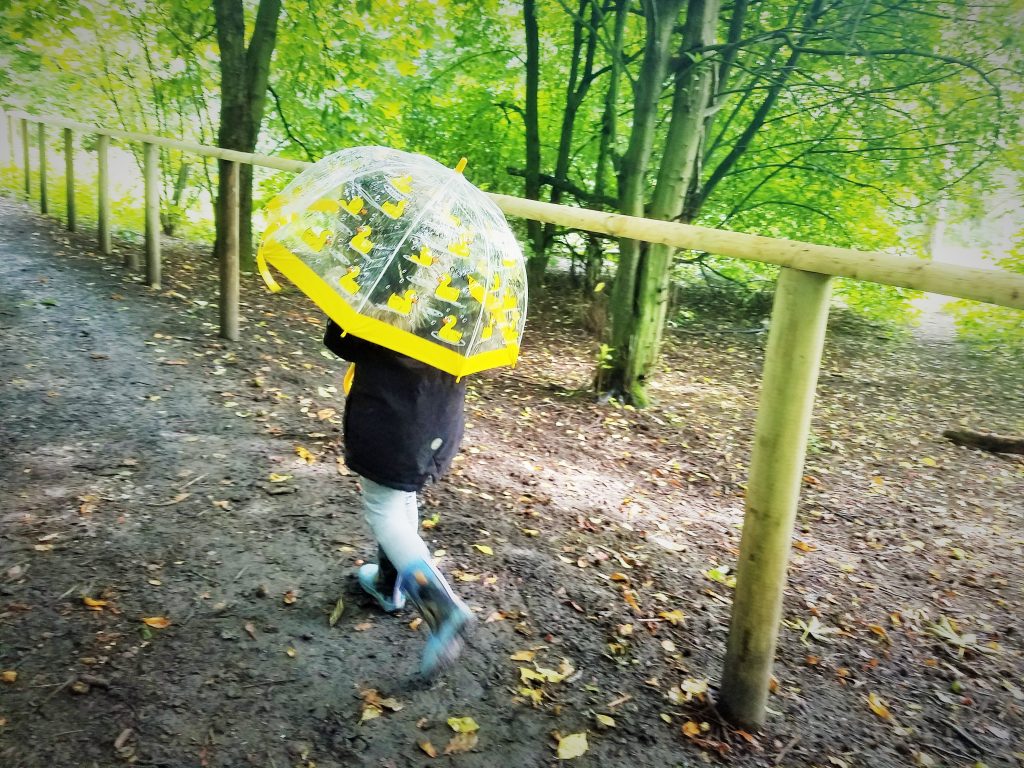
Gentle Parenting A Child Who Is Afraid Of The Dark
I think everyone has had the experience of being afraid of the dark. And it can be a really big problem for kids. I have many memories of being paralysed with fear in my bed, or the panicked run of having to dash to the toilet on my own.
Recently we’ve had a lot of issues with our girls (8 and 4) being afraid of the dark. And the problem is, when one of them starts panicking, the other picks up on it, so they both end up petrified!
It seemed to come completely out of the blue but suddenly I stopped being able to go to the toilet on my own or hang the washing out because they both HAD to be in the same room as me. Even sitting at the kitchen table with me wasn’t enough – it had to be close enough to touch me and, preferably, sit on my knee.
What started out as being a fear of the dark became an uncontrollable fear of being away from mummy or daddy.
Our initial approach was to brush it off – they hadn’t been afraid of the dark before so why were they suddenly being silly about it now? But, if anything, this made things worse.
It needed a more thoughtful, targeted approach.
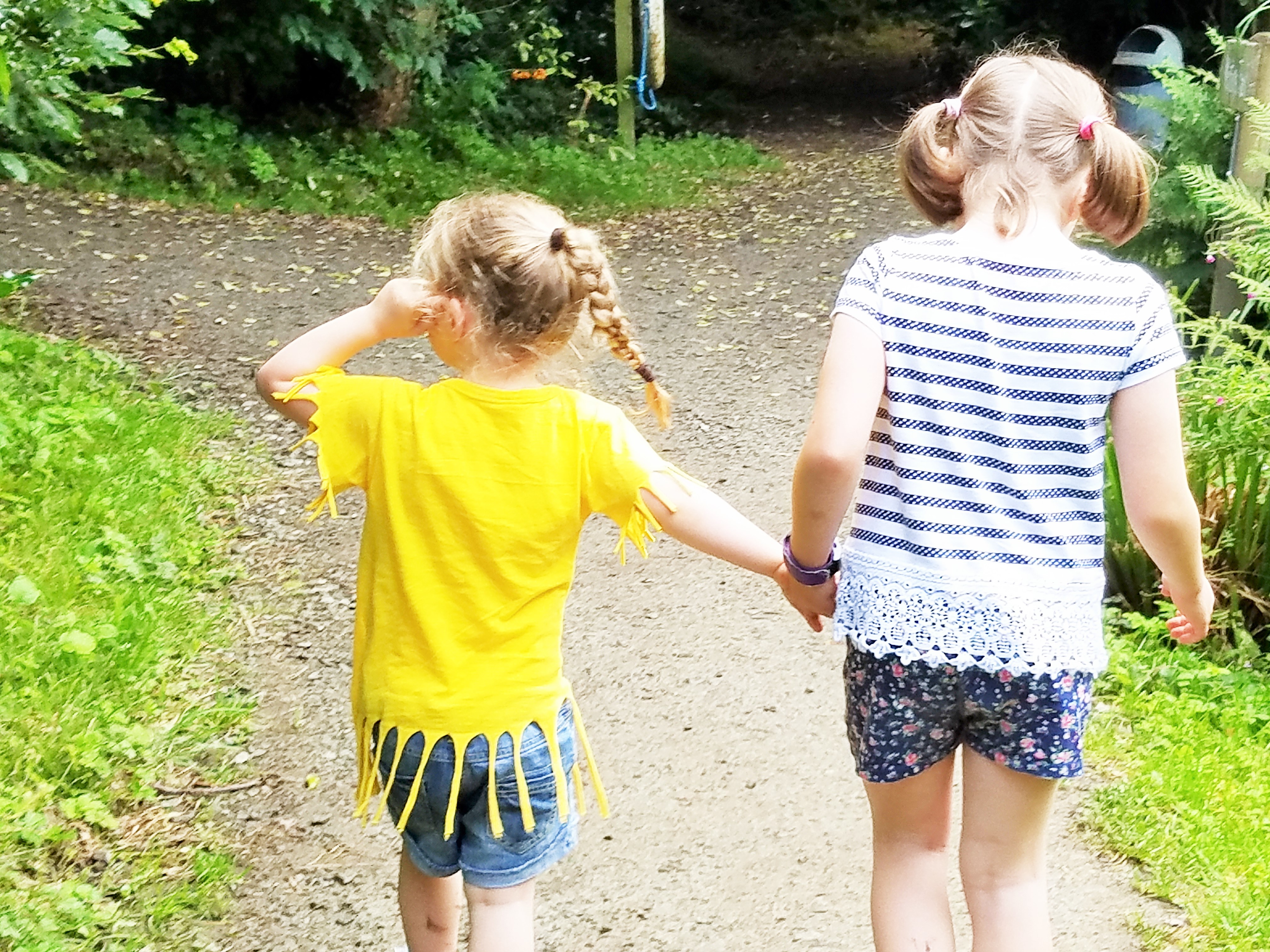
Fear is irrational
I think the most important thing to remember is that fear is irrational.
For example…
I live in a country where there are ZERO dangerous spiders… and yet I am terrified of them! I will not enter a room if I see one. But I also daren’t look away because, once I know there’s a spider, I need to know exactly where it is.
This phobia has also developed into a mild fear of upside down cups because my mum used to put a cup over any spiders she saw and wait for my dad to come and remove them. So if the kids happen to have left a cup upside down, I won’t pick it up, because I’m always scared a spider will run out from underneath it!
There is no logic to any of this. The spiders in my house will not do me any harm. The cups will not do me any harm. I know that I am in no danger. And yet I find my heart racing every time.
As frustrating as it is, you can’t reason with fear. You may know that your child is safe and that there are no monsters in the cupboard, but the terror your child is experiencing is real nonetheless. Those feelings are true and big and horrible, even if the cause of them seems trivial to us.
So stop trying to win the argument with your little ones and forget your straight-thinking logic. Here are 7 tools to help your child who is afraid of the dark.
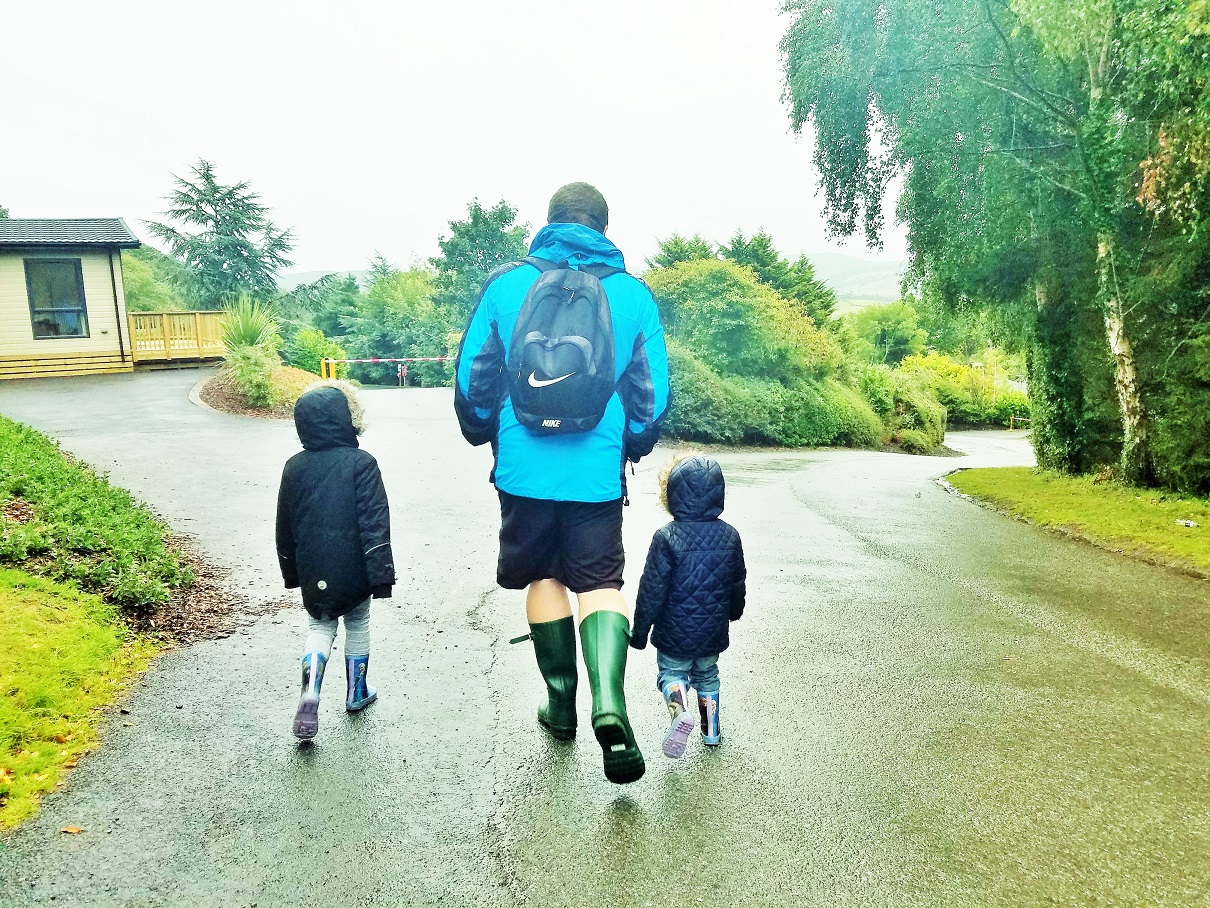
How to help a child who is afraid of the dark
Of course there are the usual things to think about:
- Make sure you listen to what they’re saying
- Validate them by agreeing that the dark can be scary sometimes
- Explain that monsters aren’t real, etc
But I want to share some more in-depth tactics to really get to the heart of the problem.
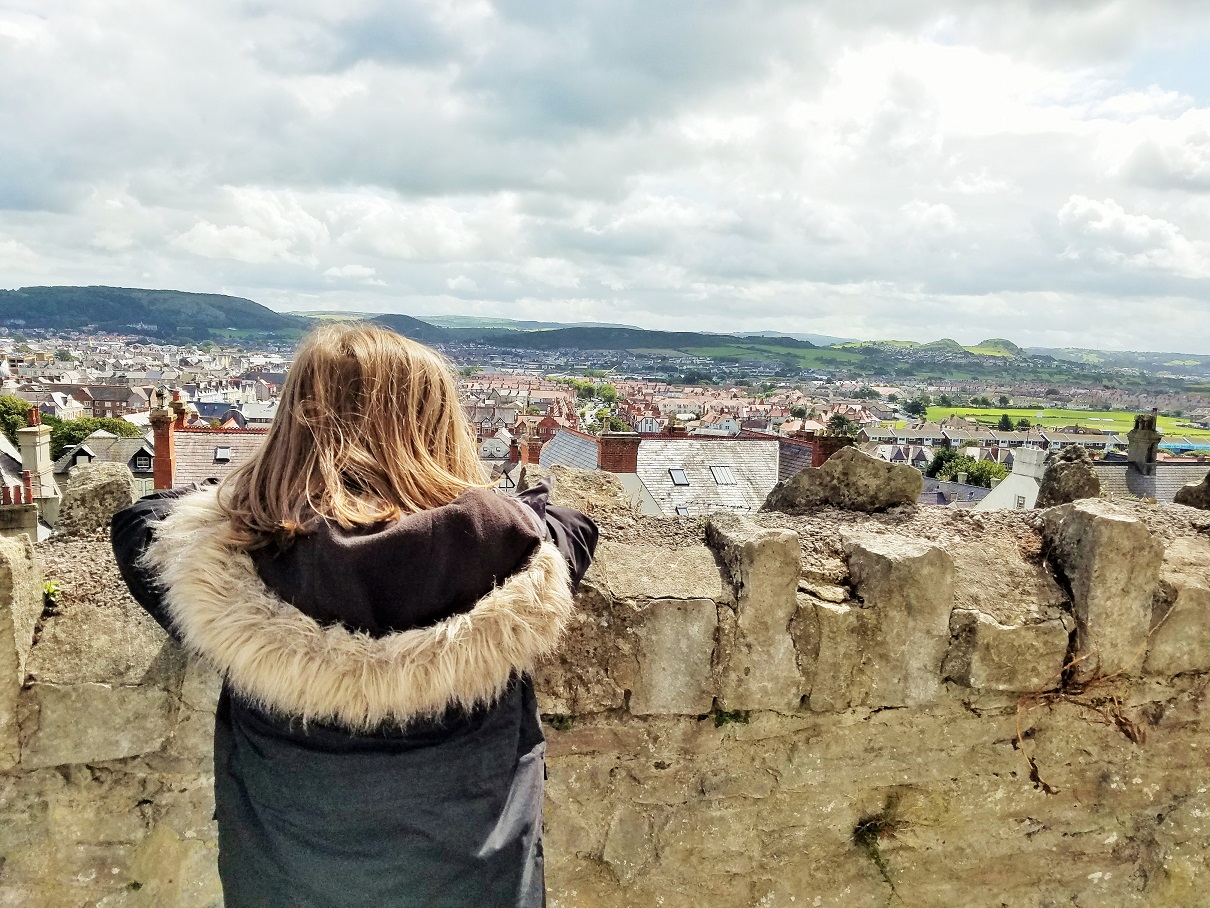
1) Ask questions to help them verbalise the fear
Being afraid of the dark can include all kinds of issues – is it a fear of monsters? is anxiety about being unable to see? are they worried about being alone? Ask open questions that will get your child thinking. Big, scary emotions can feel overwhelming, but if they can verbalise what’s going on, it will feel more contained.
- Why do you think you’re scared now when you weren’t before?
- What scary things are you imagining?
- How can I help you? What will make this better?
Fear can shut down the brain so your child might not be able to answer these questions at night, once the fear has started creeping in. Instead, tackle the conversation at a different time when you child feels safe and secure.
And remember, if you listen now, they’re more likely to come to you with their fears and worries in the future too.
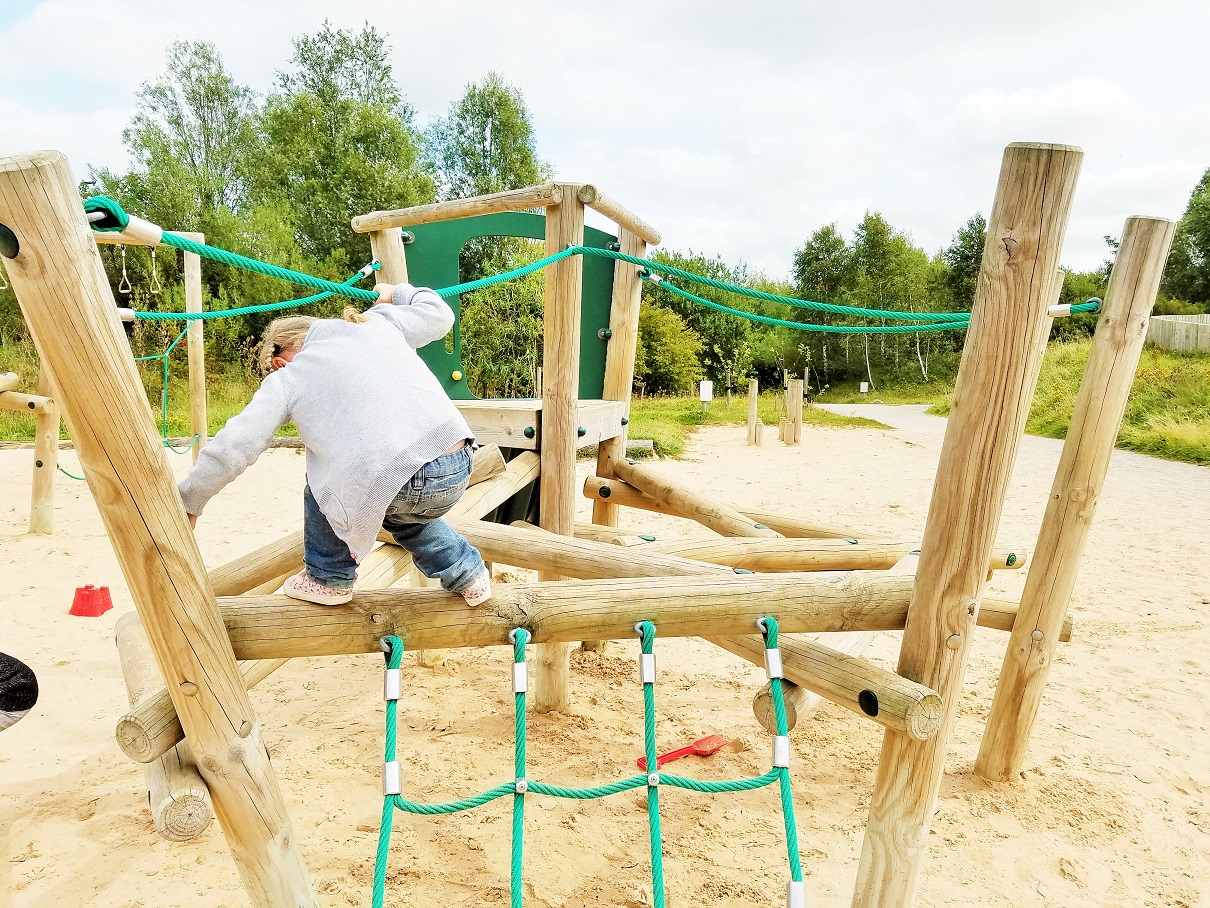
2) Empathise
Don’t laugh, don’t tease and don’t get angry. Your child is feeling scared and probably a little insecure – you need to prove you are 100% of their side. Use the kindest, softest approach that you can – stress increases fear but calmness and support is a great antidote.
Get down on their level, giving undivided attention. Nod, smile, squeeze their arm, hold their hand, cuddle, give eye contact – let them know in as many ways as possible that you’re there to help them.
Having someone on their side will undoubtedly take some of the fear away.
3) Go back to basics
It doesn’t matter if your child used to go to bed with the light off – right now, they need the light back on.
Think about it this way: If you stubbed your toe getting out of bed, you wouldn’t say “Well I managed yesterday without a bandage – it would be a backwards step for me to start wearing a bandage now.”
If your child needs the light on, let them have it on. If they need you to sit in their room while they fall asleep, make yourself comfy and be the support they need.
This might go against traditional parenting theory, but going back to basics can reset their brain and break the cycle of fear. Having mum in the room makes them feel safe. Over time, they stop associating the dark with being frightened and associate it with feeling safe and going to sleep instead.
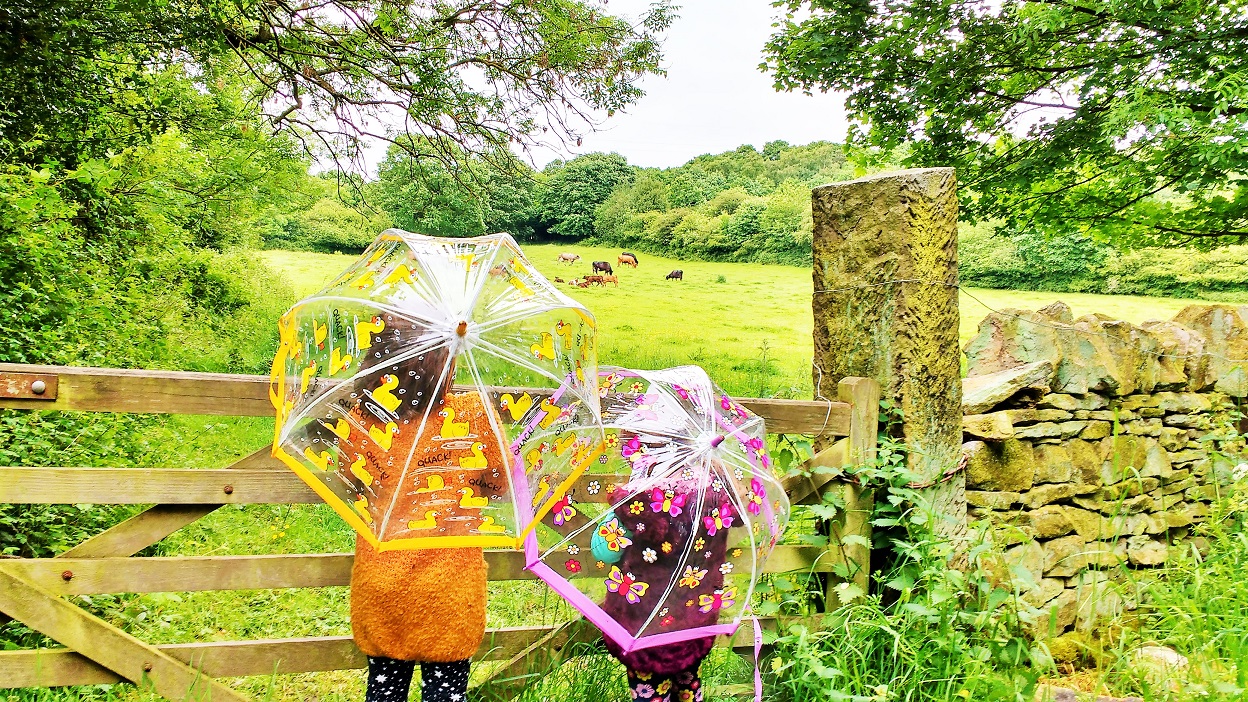
4) Baby steps
Of course you’re not going to want to spend the next 10 years sitting on the bedroom floor…! So once you’ve gone back to basics, and your child is starting to feel more comfortable, you can start working towards getting back to where they were before.
Try to build up in the smallest steps possible so your child doesn’t really notice. You don’t want to undo your hard work by moving too fast. Repeat each step as many times as you need before moving onto the next.
Here are two lists of baby steps you could try if your child is afraid of the dark:
STAYING IN THE ROOM
- Sit on the bedroom floor until your child falls asleep (try not to engage in conversation – this is sleeping time)
- Sit on the floor but after a few minutes, explain that you’re just nipping out to the toilet. Then come straight back.
- Sit on the floor but after a few minutes say that you’re going downstairs to get a drink. Then come straight back.
- Repeat number 3 but explain that when you come back, you’ll just sit at the top of the stairs instead.
- Start off sitting at the top of the stairs.
- Sit at the bottom of the stairs.
- Put the child to bed and go downstairs. Congratulations. You’re back to where you began – child is being put to bed and happily going to sleep on their own!
PUTTING THE LIGHT ON
- Leave the bedroom light on.
- Turn the main bedroom light off but use a lamp instead.
- Turn all lights off in the bedroom but keep the hall light on and the door wide open.
- Repeat number 10 but just leave a crack in the door.
- Use a dim night light.
- Use the night light but turn it off once child is asleep.
- Put child to sleep without any lights. Congratulations. You’re back to where you began – child is being put to bed and happily going to sleep on their own!
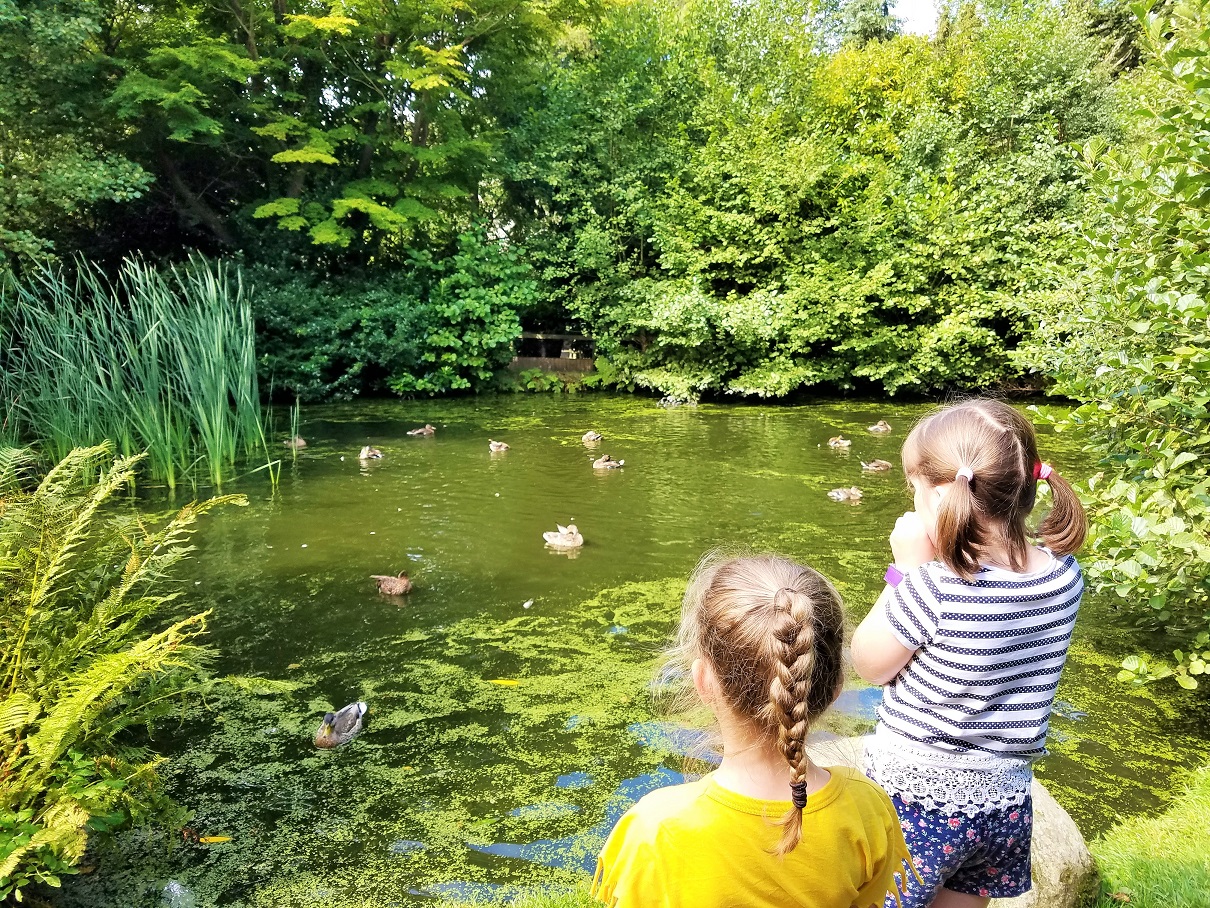
5) Work through the fear together
Just like we teach our kids to speak and to ride a bike, we also need to teach them how to deal with their emotions. In the past, kids were just left to figure it out for themselves but actually a bit of emotion coaching from someone who is more experienced can really help.
If they’re afraid of the dark, we need to teach them how to stop being afraid or at least how to process fear.
If you’re new to this, here are a few quick ideas:
- LABEL THE EMOTION | “It looks like you’re feeling scared / vulnerable / overwhelmed / wary.” – a label makes it feel easier to tackle rather than just a huge, overbearing fear
- EMPATHISE WITH THE EMOTION | “It’s not nice when you feel scared, is it. I feel like that sometimes too.” – knowing that fear is normal is comforting because they’re not alone
- MAKE A PLAN | “I’m here for you. Let’s fix this together. This is what we’ll do:___” – decide together what to do the next time this fear creeps in
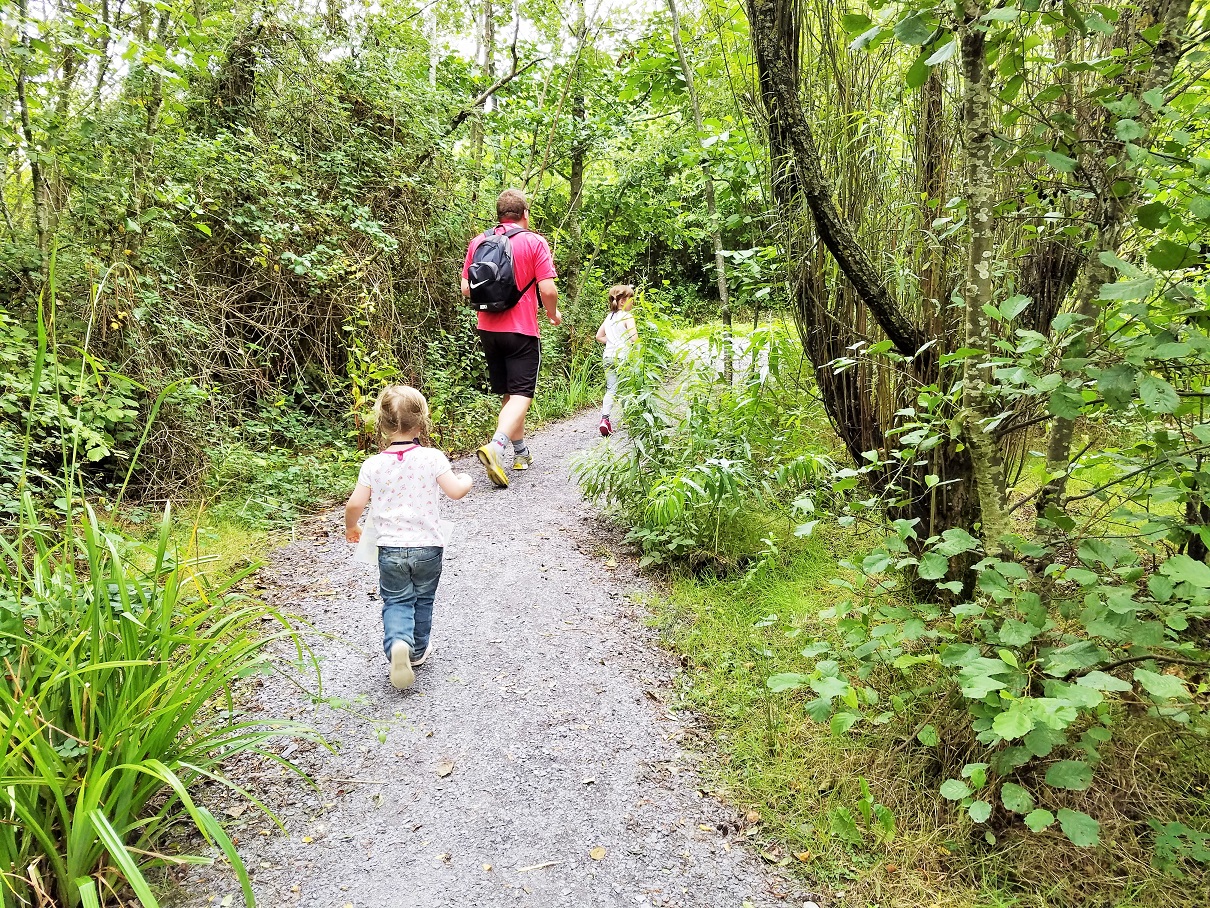
6) Create a mantra
A mantra is a phrase that you repeat to help you gain control of your thoughts. Using positive language can have a huge impact on our perception of the world. Repeating a positive mantra can give courage and confidence. Try things like “I am brave” or “I am safe”.
We practise them through the day, shouting, stomping, whispering, singing – just to get it in their heads.
7) Tackle the physical symptoms of fear too
Fear isn’t just in your head – it shows itself in your body too. Try to work out where you child is holding tension. They could hunch their shoulders up or clench their fists. Maybe they grind their teeth or fiddle with their hair. Identify the behaviour and consciously stop it.
It can be a huge relief to relax your shoulders when you’ve tensed them up without even knowing it. Teach your child to be aware of their body and to consciously relax when they begin to feel afraid of the dark.
Breathe in and out slowly together. Show your child how to be calm and how to take control of their fear.

It may seem like overkill. Perhaps it will just be a phase and in a few weeks, they’ll be right as rain. But this isn’t just about being afraid of the dark – it’s about training our kids to deal with complex emotions. We’re filling up their life toolkit so that they have solutions to fall back on, whatever the situation, for years to come.
What were you afraid of as a child? As an adult, do you find it easy to cope with big emotions or do you wish you had had more coaching in this area? What do you do to help your kids when they are feeling afraid? Leave a comment to join the discussion!
PIN it for later:
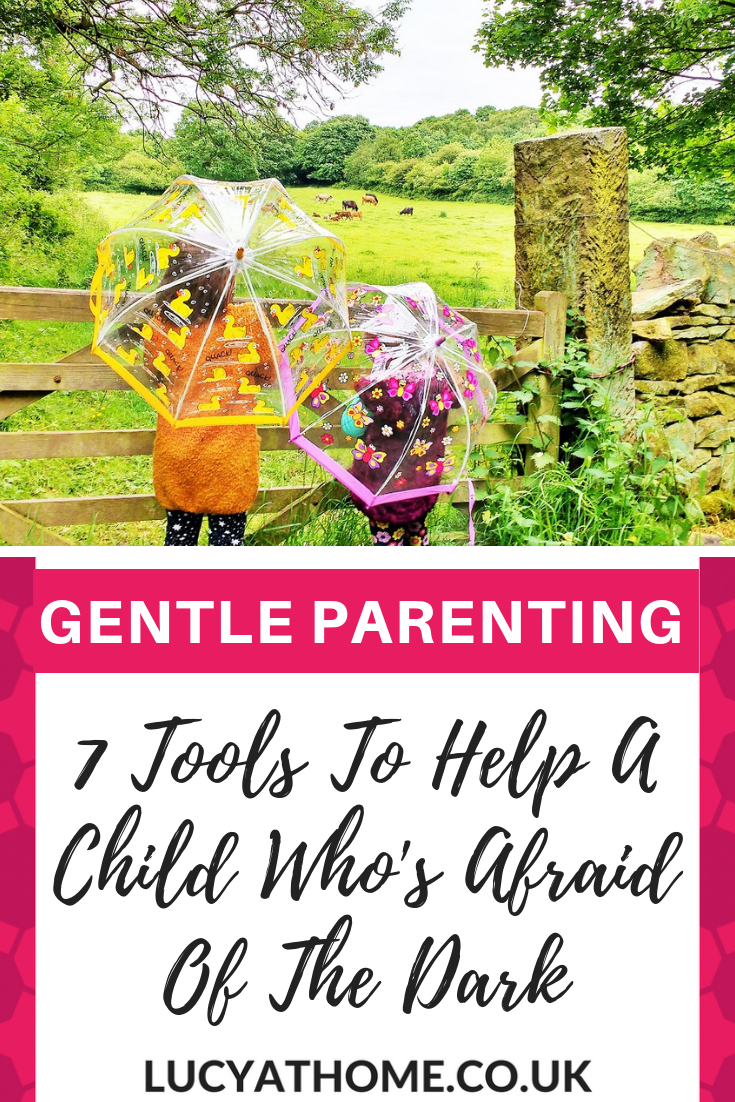

Our girl is 15 now, and has suffered from anxiety about the dark, connected to fear of dying, we learned. The upshot is she sleeps with her light off, but the bathroom light is always on, even with the door just ajar. So, based on a very real fear, and hard to persuade her she will not die, sometime! But she has expressed it, we have talked about it, and it is containable!
Such a useful guide to something most parents experience at some time. I thought I was doing really well but my 11 year recently had problems and I worked through it in a similar way. She’s okay again now, but it’s something that can happen at any time and it’s not something you want to continue if you can help it.
This is really well written and explained, all three of mine have been through this and I’m sure they will again. Thank you for the pointers. #BlogCrush
My youngest is terrified of the dark and even now sleeps with a light on and a selection of torches under his pillow. I think listening and having a conversation does really help, and I totally agree with the sitting on the floor/top of the stairs etc thing – I’ve done that with several of my kids!
Brilliant tactics here Lucy. Our little girl currently has a night light, though it isn’t the ideal situation is it? She isn’t totally getting the darkness that her body needs overnight. Will pin this #BlogCrush
These are really great suggestions which I will try with my little boy. He has always been scared of the dark and even though he is now age 11, he still sleeps with the light on each night. I will definately try to get to the root cause! (PS Im with you on the Spider fear!)
Thank you, Lucy. Our Little, she is terrified of being on the second floor, if we are on the first. This is relatively new and now I have a plan to share with the Mrs. and put into action. I am learning so much from you and gentle parenting. xoxoxo #blogcrush xox
This is such a helpful guide to help our kids overcome fear. I like what you said about us as parents are our children’s safe place. #Blogcrush
Excellent tips here, my 12 yr old ASD son is still very fearful of the dark and the bedroom has to be set up in a very certain way with the door open wide, these are all little adaptations I’ve learnt to ensure the sleeping process is made all the more easier. It always good to get a second eyes perspective though so I’ll be bearing these tips in mind.
Brilliant post once again, I like how you’ve laid out some helpful strategies. It can be hard to be patient and go back to the basics but so valuable and like you say, you are helping them lay groundwork for the future. #blogcrush
Some great advice here! I think I’ve probably in the past been guilty of minimising the kids fears because to me they don’t make sense! That’s a really unhelpful thing though as to them they are very real and present, no matter how frustrating it is ! Your practical hints are way better. I am in no position to ridicule irrational fears I’m the one terrified by fish for goodness sakes!! #blogcrush
Lovely post Lucy, thank you! Your advice and reasoning really make good sense. I had a little lightbulb moment when reading this, about why I’ve always found it so uncomfortable to ask my parents for help. Thinking back to my childhood, I can’t remember them encouraging me to come to them for support or help, but rather pushing me to be independent (not with the basic practical life skills though, as they did all the cooking, cleaning, laundry etc., but with everything other than that). And although being left to problem-solve things on my own hasn’t always been a negative thing, it has definitely made me feel that showing weekness to my parents is a failure on my part.
I hope your girls will soon feel more safe again, with your loving support xx
(Oops I forgot the hashtag: #BlogCrush)